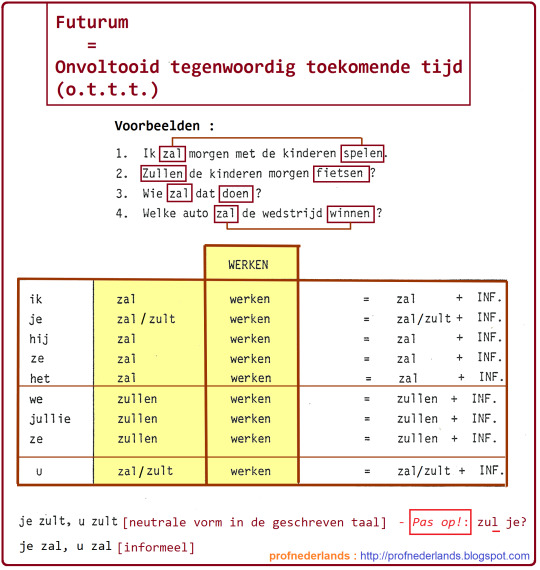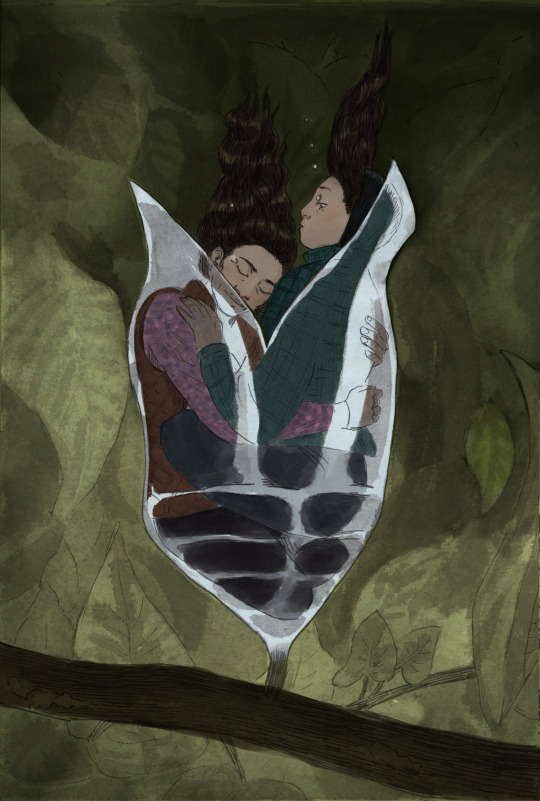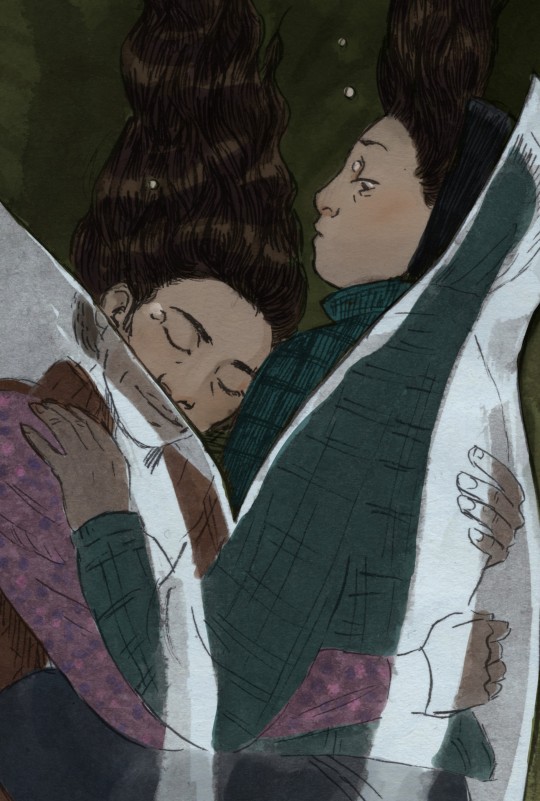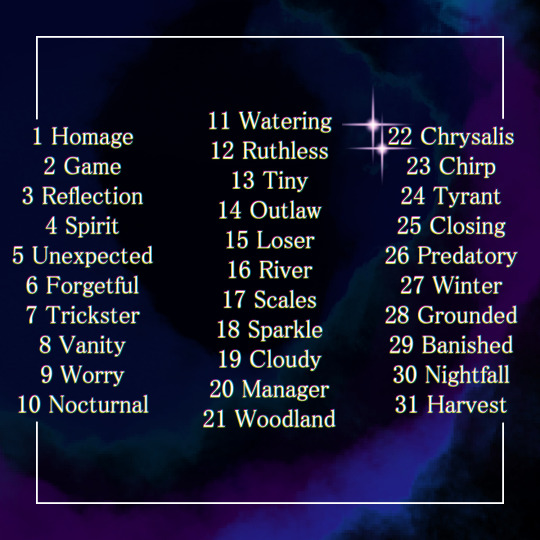#dutch verbs
Text

𝕆𝕟𝕧𝕠𝕝𝕥𝕠𝕠𝕚𝕕 𝕥𝕖𝕘𝕖𝕟𝕨𝕠𝕠𝕣𝕕𝕚𝕘 𝕥𝕠𝕖𝕜𝕠𝕞𝕖𝕟𝕕𝕖 𝕥𝕚𝕛𝕕 [= 𝕠.𝕥.𝕥.𝕥.] / 𝕗𝕦𝕥𝕦𝕣𝕦𝕞
future / futur simple / Futur I / futuro semplice
🔸 WERKEN : to work / travailler / arbeiten / lavorare
ik zal … werken : I will (shall) work; I’ll work / je travaillerai / ich werde … arbeiten / (io) lavorerò
je zal / zult … werken : you will work; you’ll work / tu travailleras / du wirst … arbeiten / (tu) lavorerai
hij, ze, het zal … werken : he, she, it will work; he’ll, she’ll, it’ll work / il, elle travaillera / er, sie, es wird … arbeiten / (lui, lei) lavorerà
we zullen … werken : we will (shall) work; we’ll work / nous travaillerons / wir werden … arbeiten / (noi) lavoreremo
jullie zullen … werken : you will work; you’ll work / vous travaillerez / ihr werdet … arbeiten / (voi) lavorerete
ze zullen … werken : they will work; they’ll work / ils, elles travailleront / sie werden … arbeiten / (loro) lavoreranno
u zal / zult … werken : you will work; you’ll work / vous travaillerez / Sie werden … arbeiten / (lei) lavorerà
👉 Profnederlands : o.t.t.t. (onvoltooid tegenwoordige tijd) / futurum
👉 Diaspora : o.t.t.t. (onvoltooid tegenwoordige tijd) / futurum
👉 Pinterest : o.t.t.t. (onvoltooid tegenwoordige tijd) / futurum
16-08-2022
#o.t.t.t.#onvoltooid tegenwoordig toekomende tijd#futurum#future#werkwoorden#dutch verbs#nederlandse werkwoorden#verba#verbs#verbes#spraakkunst#grammatica#nederlandse grammatica#dutch grammar#dutch#nederlands#nederlandse taal#dutch language#niederländische grammatik#nederlands leren#learn dutch#dutchblr#dutch langblr#néerlandais#apprendre le néerlandais#niederländisch lernen#dutch studyblr#grammatica olandese#vervoeging#conjugation
3 notes
·
View notes
Text


Why do we say he/she can, may and shall instead of cans, mays and shalls? That's because these verbs stem from ancient past tense forms. Compare he/she drank and he/she swam. The ancestor of can originally meant 'has learnt to'. Click the images for further explanation and examples in other languages.
#proto-germanic#lingblr#etymology#modal verbs#dutch#german#english#icelandic#norse#linguistics#historical linguistics
75 notes
·
View notes
Text
theres a turn of phrase i use that im pretty sure is neither english nor dutch and also warps the function of the word 'right' in both languages at the same time but i keep using it bc it's just quicker than any other way and im a writer of shortcuts

#p sure ive turned 'right' into a noun here which. it is not?#at least not in the sense that im using it here#when someone is right. thats not a noun.#in iemand gelijk geven it does sort of sound like it could be a noun but im not sure#i think i went. 'iemand gelijk geven' (lit. give someone right. 'admit someone IS right') ->#'haar gelijk geven' (lit. give HER right. 'admit SHE'S right') ->#this#i just fudged the verb and 'right' went wobbly prob bc it has a different function in english and dutch but im not sure#either way i dont think this is parseable to an english reader#nonetheless i will keep using it#'who cares if they know what i mean i like these words in this way'#it's just you need a gelijk geven in english and i dont know what else it would be#now i need to find out if french has a gelijk geven#DONNER RAISON hahahah hell yeah 🤝
20 notes
·
View notes
Text
vh voice: ohoh! but he was the fool, for he faggoted down the stairs
#abraham van helsing#dracula daily#dracula#rambling#lets all collectively think about how the dutch version of faggot is also an slang verb for falling#seward voice i don’t think you can reclaim that one professor
26 notes
·
View notes
Text
east and southeast asian language conjugation I love you east and southeast asian language conjugation. Romance language conjugations I hate you.
#RAHHH ITS SO MUCH EASIER#learning spanish as an english speaker u get easier vocab to remember and grammer more similar to english#but in exchange you give up any hope of knowing all the verb conjugations#and its yhe opposite for Japanese#Indonesian is the best of both worlds#the dutch influence makes the grammer and vocab a lot more similar to english#AND its verb conjugations are easy#I love you indonesian mwah mwah ur my favorite language ever. All those other bitches can burn but not u I love u#SO SAD tho. bcs I cld never survive in SEA w/ the heat and humidity
6 notes
·
View notes
Text

if you get it, you get it
#or you just speak any/all of these languages#not helltalia#linguist humor#germanic languages#west germanic languages#memes#was laughing at Dutch and German having so many things called 'verb that already exists + stuff'#then remembered 'foodstuff' is a word that exists in english
31 notes
·
View notes
Text
love the fact that i have to think for 5 seconds whenever i need to distinguish left from right or par exemple, writing elevator
and then having to do a double take that goes ''IS IT ELEVATOR.... OR IS IT EVELATOR?''
#sy.txt#god. why#like okay it makes more sense to me if i need a double take on writing occasionally as in. does it have 1 c and 2 s or the other way around#pain. pain everywhere.#probably also the reason i could never learn or understand german despite it being so similar to dutch LMFAO#THE VERBS!!!! GOD I FUCKING HATE PARTICULAR VERBS IN GERMAN! BE DIFFERENT FOR GOD'S SAKE#RATHER THAN HAVING THE SAME SPELLING IN DUTCH BUT THEN MEANING SOMETHING COMPLETELY DIFFERENT!#mfw i realised it's called an elevator because it elevates a passenger 🧍♂️#this makes me just as randomly angry without reason like that time i thought about roundabout. because you go round to go about. god.
0 notes
Text
Dutch is great because so many idioms for killing someone contain the verb "to help". Het hoekje om/om zeep/naar de andere wereld - I'm just helping you get there. Doing you a favour, really.
334 notes
·
View notes
Text

hoeder is dutch for guardian/keeper specifically in like either a shepherd kinda way or a record keeper kinda way. someone who protects and maintains a group of people or social construct considered precious. putting -er behind it to make hoederer is an awkward double conjunction, the base verb is hoeden and hoeder already turns it into "someone who keeps" so hoederer to me reads like a roundabout "someone who performs the actions of a keeper" (and like he got the name from something he read rather than speaking terran dutch himself). it's a very suitable name for him and his "personal habits" of writing about the lives and culture of sarkaz beyond the endless violence and pulling orphans like W out of the trash
88 notes
·
View notes
Text
For any of my fellow English speaking QSMP watchers looking to learn or brush up on their Spanish- I'm no expert, but I've done my time in middle and high school Spanish class, and I have a few website recs:
Word Reference: Spanish-English dictionary. Gives you information about multiple meanings of the word, as well as compound words and idioms. Also has a bunch of other languages (French, Italian, Catalan, German, Dutch, Swedish, Icelandic, Russian, Portuguese, Polish, Romanian, Czech, Greek, Turkish, Chinese, Japanese, Korean, and Arabic)
SpanishDict: Another Spanish-English dictionary. I mainly use it for looking up verb conjugations, since IMO its charts are much easier to read than Word Reference's. It also had some other features that you have to make an account to use.
Conjuguemos: Conjugation practice games (with a frog mascot!). It tries to get you to make an account, but you don't have to- just click "use without account". You can sort by tense, mood, and regularity, and there's both straightforward practice and flashcards and more gimmicky games. Also has vocab and grammar practice, and a few other languages (French, German, Italian, Portuguese, Korean, and Latin)
655 notes
·
View notes
Text

French voir, Spanish ver, and Italian vedere (to see) are related to German wissen, Swedish vet, and Dutch weten (to know). Their common root was a Proto-Indo-European word meaning 'to see'. Its perfect tense took on a resultative meaning: 'to have seen' became 'to know'. The infographic above will tell you more about it.
Want to wit even more about to wit?
If you'd like to support my work, I'd be thrilled if you subscribed to my Patreon. Most posts include a short article (300-1000 words) that dives further into what the infographic shows. Today's article (700 words) tells you all about to wit and why it used to resemble strong verbs such as to ride ~ rode ~ ridden.
#historical linguistics#linguistics#language#etymology#english#latin#french#dutch#german#spanish#old english#proto-italic#old french#old dutch#old high german#old spanish#portuguese#old galician-portuguese#proto-indo-european#ancient greek#greek#gothic#old saxon#low saxon#old frisian#west frisian#old norse#norwegian#danish#swedish
77 notes
·
View notes
Text
Best Curse Word Tournament!
jebać (Polish)
/ˈjɛ.bat͡ɕ/
an intense verb with many meanings, including to make noise, rant, fuck, hit, toil, smell, ignore, ruin, throw, deteriorate, etc.
tering (Dutch)
/ˈteː.rɪŋ/
1. tuberculosis
2. expenses
3. an expletive used like “shit”
192 notes
·
View notes
Text


[ID in alt text]
Inktober day 22: chrysalis.
This was haaard and I don't even know if it turned out ok anymore lol. Everything Everything All At Once is an intimidating movie to make fanart for.
But anyway: the Dutch verb "ontpoppen" has a few meanings, two of which: 1) the act of coming out of a chrysalis 2) the process and/or result of learning and growing. So it seemed appropriate to apply this prompt to Evelyn and Joy Wang :))

[ID in alt text]
#everything everywhere all at once#evelyn wang#joy wang#described#inktober#inktober2023#fanart#danikunst#day 22#2#2023
117 notes
·
View notes
Text
“The Greek word for "return" is nostos. Algos means "suffering." So nostalgia is the suffering caused by an unappeased yearning to return. To express that fundamental notion most Europeans can utilize a word derived from the Greek (nostalgia, nostalgie) as well as other words with roots in their national languages: añoranza, say the Spaniards; saudade, say the Portuguese. In each language these words have a different semantic nuance. Often they mean only the sadness caused by the impossibility of returning to one's country: a longing for country, for home. What in English is called "homesickness." Or in German: Heimweh. In Dutch: heimwee. But this reduces that great notion to just its spatial element. One of the oldest European languages, Icelandic (like English) makes a distinction between two terms: söknuour: nostalgia in its general sense; and heimprá: longing for the homeland. Czechs have the Greek-derived nostalgie as well as their own noun, stesk, and their own verb; the most moving, Czech expression of love: styska se mi po tobe ("I yearn for you," "I'm nostalgic for you"; "I cannot bear the pain of your absence"). In Spanish añoranza comes from the verb añorar (to feel nostalgia), which comes from the Catalan enyorar, itself derived from the Latin word ignorare (to be unaware of, not know, not experience; to lack or miss), In that etymological light nostalgia seems something like the pain of ignorance, of not knowing. You are far away, and I don't know what has become of you. My country is far away, and I don't know what is happening there. Certain languages have problems with nostalgia: the French can only express it by the noun from the Greek root, and have no verb for it; they can say Je m'ennuie de toi (I miss you), but the word s'ennuyer is weak, cold -- anyhow too light for so grave a feeling. The Germans rarely use the Greek-derived term Nostalgie, and tend to say Sehnsucht in speaking of the desire for an absent thing. But Sehnsucht can refer both to something that has existed and to something that has never existed (a new adventure), and therefore it does not necessarily imply the nostos idea; to include in Sehnsucht the obsession with returning would require adding a complementary phrase: Sehnsucht nach der Vergangenheit, nach der verlorenen Kindheit, nach der ersten Liebe (longing for the past, for lost childhood, for a first love).”
― Milan Kundera, Ignorance
#milan kundera#milan kundera quote#quote#quotes#nostalgia#nostalgic#ignorance#milan kundera ignorance#quotations#book quotes#book quote#book quotations#literature#etymology#word origins#longing#word play#yearning#word#words#word meaning#meaning#nostalgia meaning
50 notes
·
View notes
Text

HAPPY BIRTHDAY, @morp
It's my friend's birthday, please go wish them a happy birthday! Morp, as a birthday gift I made this snapper since I know you this is your favourite dragon type in Flight Rising and a little special something we brainstormed together.
Here's a little Dutch lesson since I know you love learning about new stuff: 'gelukigge verjaardag' means happy birthday. But 'geluk' also means luck in Dutch. As for 'verjaar', it refers to the passing of the year as it literally translates to 'year'. It can also become a verb, specifically correlating with your or someone else's birthday. It can only be used in the context of something living becoming a year older.
Wanted to wish you a happy birthday in my native tongue, :p.
Please enjoy, and have an absolutely sweet birthday! ♪(^∇^*)
#birthday#snapper#for my dear friend#kirby fanfic#kine kirby#yin yarn#kirby series#rick kirby#coo the owl#my art#my writing#for morp#flight rising
26 notes
·
View notes
Text
A bit more pronunciation fun...
Vase (thing to put flowers in) can be vaaz or vays, both are correct, the difference is usually based on class or region.
Scone (small crumbly bun / US biscuit) is skonn or skown, both are correct for the same reasons.
In both instances a particular version can be used just because it fits better: the classic example here is Discworld’s The Scone of Stone, pronounced as you might expect, even though in its real-world equivalent The Stone of Scone, that Scottish place-name is pronounced more like skoon.
*****
Rain, Reign and Rein are all pronounced more or less the same yet all have different, non-interchangeable meanings - but you’ll still see the second two used wrongly more times than you’d like.

And then there are words like Pique Peek and Peak, Breach and Breech, Peel and Peal, Compliment and Complement - again all pronounced more or less the same, all with completely different non-interchangeable meanings varying with context and indeed whether they’re used as noun or verb.
English is a succession of successful pitfalls placed in plain sight - this site could be seen from a plane - to trip or trap any weary wanderer who is less than wary.
While wandering, this one went wondering out of his way to weigh a secret load of lodestone that someone had secreted under a tree near a well. He meant to seize it but now sees, through eyes that secrete tears, the tears in his clothes caused by a bear which couldn’t bear his presence.
It probably believed he was after the hoard of food that had once been a horde of creatures, cheap stuff like birds that once went cheep and deer that might have been dear to buy if they’d got by the bear.
The maid at his lodging might have made repairs though first he had to flee. So he leapt like a flea many feet across a brook, quite a feat, but the bear brooked no denial. Its muscles coiled like a spring, then it made a spring the way bears do in Spring.
He breathed in short pants while its claws, sharp as any clause in a rent agreement, rent his short pants, but they barely bared his hide as he tried to hide. He could have tried the bear in court, but so near its homestead it might have caught him instead.
The breaches in his breeches came apart. A part of the bear’s failure to meet the meat was not getting a grip; maybe it suffered from grippe after taking a fall in the fall. We end our tale with no sting in its tail, since the wanderer didn’t fall in the well.
So all’s well.
I had to stretch a bit in places (grippe? come on!) but not as much as I’d expected, and it goes a long way to demonstrate why English is such a difficult language to learn, never mind master. And that’s before class, regional and dialect variations get added to the mix.
Are we having fun yet?
:->
*****
Finally...
Colonel (military rank) is spelt that way but pronounced kurnel / kernel because it started as the French rank for an officer commanding the sort of infantry column (la colonne) familiar from the Sharpe series. That rank was "Colonnel” and both “L”s were voiced.
The French pronunciation changed over time and became (approximately) “co’onel” while the spelling became “Colonel”. Italian still has and sounds every “L” as “Colonello”, Spanish went the other way as “Coronelo”, while in Irish it’s Coirnéal, pronounced and now usually spelt “cornal”.
Why the English version looks and sounds as it does, I have no idea; possibly a long familiarity with words that don’t sound the way they look, along with a disinclination to pronounce anything foreign (especially French) the way the foreigners do.
*****
Lieutenant (military rank) is lootenant in the US armed forces, luhtenant in the British navy and leftenant in the British army and air force.
That British “lef-” version is the outlier. Apart from Malay (Leftenan, a possible Britfluence) no other language (that I bothered checking) which starts this word with “L” has an “F” sound anywhere.
French (Lieutenant), German (Leutnant), Dutch (Luitenant), Danish (Løjtnant), Swedish (Löjtnant ), Norwegian (Løytnant), Estonian (Leitenant), Finnish (Luutnantti), Polish (Lejtnant), Ukrainian (Лейтена́нт, pron leytenant,) Russian (Лейтена́нт pron. leitenant)…
*****
ETA: @katbelleinthedark has pointed out (in no uncertain terms, gosh) that "Lejtnant” isn’t the Polish word for Lieutenant (thanks for nothing, Wikipedia link from “Lieutenant”.) The proper word is “Porucznik”, which fairly obviously doesn’t have either “L” or “F” sounds anywhere. So, deleted. Any other corrections will also be, er, corrected. No need to shout, just ask.
*****
And that’s enough of that. Stannat-EASE. Dis-MISS.

@dduane - “Why is a plane coming out of his head?”
Me - “It’s a Spitfire.”
DD - “And?”
Me - ....
DD - “That’s the only answer I’m going to get, isn’t it?”
Me - :->
#fun with english#fun with pronunciation#fun with languages#confusion#discworld#scone of stone#GNU Terry Pratchett
445 notes
·
View notes